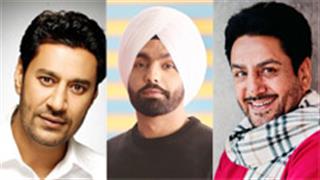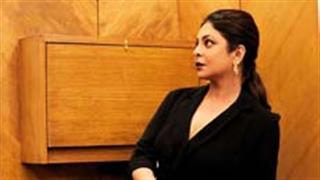Now why did this movie had 7 songs? Watching movie in a cinema hall, visiting a fair, circus or theatre was part of daily entertainement; and which still is. People wore their best clothes for their occasions. It's basically a celebration. And what can be a celebration without dance and dance cannot happen without the beats, the drums and the string instruments. Music is further accentuated by a song. And when all these come together with lyrics suited to the scene, we get a melody which gets etched into our memory. Hence we start relating a song to a movie.
Now this analogy cannot be held true for English movies. Right? No, we are wrong here. Even though we might be made to believe that Hollywood films hardly have music or dance. It can be agreed that most of the English movies do not have songs but almost all of them have music. This was true earlier and it's true now. Remember an English movie, The Sound of Music (1965) about Von Trapp family. This classic film is filled with glorious songs ("Do-Re-Mi," "My Favorite Things," "Edelweiss, "So Long, Farewell"). Then this was followed by another classic film, The Good, The Bad and The Ugly (1966) in the very next year. In this movie, Ennio Morricone offered such a brilliant opening soundtrack. One can forget the movie script but no one can forget this track. Thus good music makes brilliant movies extra-ordinary.
Coming back to Indian cinema and more specifically, Hindi cinema or Bollywood, the master musicians used myriad of instruments to create timeless masterpieces. The one name that stands out is Naushaad whose earlier success was with Mela (1948) and Baiju Bawra (1952). He pinnacled with Mughal-E-Azam in 1960. All these films were musical classics. then we had such greats like Madan Mohan, Khayyam, OP Nayyar, SD Burman, RD Burman and lately AR Rahman. They helped Hindi cinema to reach greater heights. And they were well aided by Mohammad Rafi, Lata Mangeshkar, Asha Bhosle, Mukesh Kumar and If we talk to our parents, they will vouch that only the movies with good music became hits.

Music is the key thing to enhance the feel of the story in films. In a multi-cultural country like India, songs are one of the fundamental parts of various cultures and are appreciated by people of all age groups. Our day starts with music in the form of morning prayer and ends with music in the form of a lullaby; in simple words, music is in our blood!
Long back, our forefathers discovered the power of music, hence, transformed our literature in the form of Slokas and poems to make a person enjoy while he is learning. The songs make it easier and merrier to tell and pass on stories. The trend of telling stories while singing transmuted into street plays and dramas, you can notice that plays like Ramleela, Tamashas, and local Nukkar Nataks in the past were mostly poetic; they still are.
In recent years, with the advancement in technology, capturing moments in a video became possible and we took this advantage to tell stories through videos without embedding dialogues and music into them. With the passage to time, we developed a taste for songs and since then it has become difficult for films to express emotions without songs.
This path-breaking trend was replicated by the subsquent movies as a winning formula seldom dropped. Movie after movie saw this phenomenon being followed by other filmmakers and with huge success. So much so we saw the growth of musical movies like Mughal-E-Azam in 1960 and Jal Bin Machhli Nritya Bin Bijli in 1971.
The other reason musical movies were appreciated was 'Binaca Geet Mala' which was played from Radio Ceylon by Ameen Sayani. It was a weekly countdown show of top filmi songs from Hindi cinema. It was popular and had millions of listeners. Binaca Geetmala was broadcast on Radio Ceylon from 1952 to 1988 and then shifted to the Vividh Bharati Service of All India Radio network in 1989 where it ran until 1994. This helped movies getting noticed due to this radio program. Movie songs thus became sine qua non as radio gave free publicity to movies because of the songs.

The silver stage of Bollywood music (1925 to 1940) was the period of 'Nasal Singing' when great singers like K.L. Saigai who sang "Jab Dil Hi Toot Gaya" and Shamshad Begum who sang "Mere Piya Gaye Rangoon", were considered to be the most talented singers.
The era of 1940s was of Mohammad Rafi, who entertained us with his melodious compositions like "Baharon Phool Barsao Mera Mehboob Aya Hai" and "Kya Hua Tera Wada".
With the dawn of 1950, great artists like Kishore Kumar, Lata Mangeshkar, Asha Bhosle, Manna Dey, Madan Mohan and many more made Hindi film music popular with their best performances.
After a few decades, R.D. Burman introduced western beats in Bollywood through his songs like "Mehbooba Mehbooba" from the great hit "Sholey". With this, the initial 80s saw the rise of disco music by Bappi Lahiri, who is also known as the disco king of India.
Slowly and steadily our taste in music has changed (for some it's a good change, but some do not like it). At present, Indian cinema has renowned singers and music composers like AR Rahman, Pritam Chakraborty, Shankar Mahadevan, and the list goes on.
As of now, almost every movie has some songs in it as these help in speeding up the story; and if the song in a film is relevant then it jazzes up our emotions and connects with its characters and thus leaves a permanent impression on us.
So years after watching a film, just listening to its songs will make you dive into the wave of nostalgia. This is kind of similar to how some soundtracks work in our lives as they make us remember specific phases of our life.
Apart from touching our hearts and creating memories, songs also serve two more purposes. First and foremost, movie makers earn additional revenue through song rights and album sales. On the other hand, songs help in the publicity of a film as these are released before movies, hence it helps to engage the audience from the very beginning; and also ignites a sense of excitement among viewers as the glimpses also give some pieces of information about the movie.




















